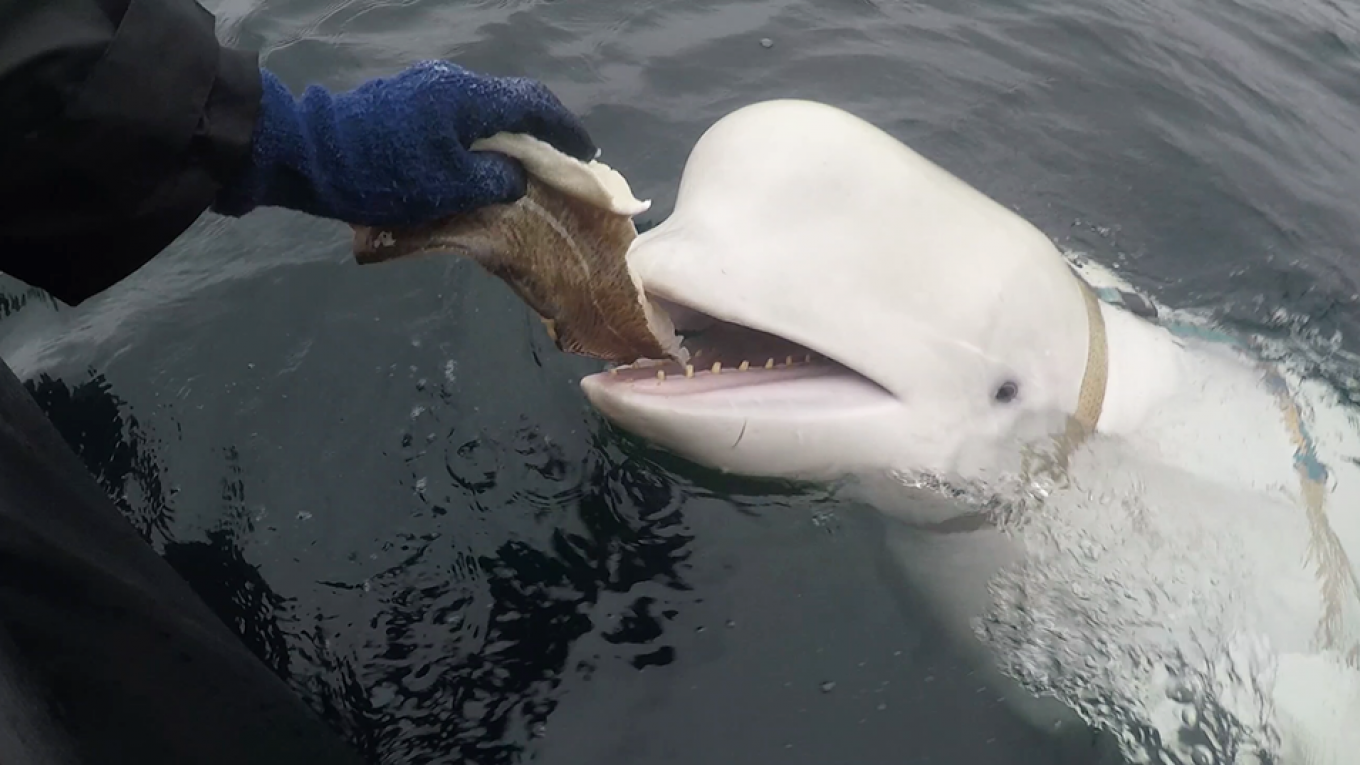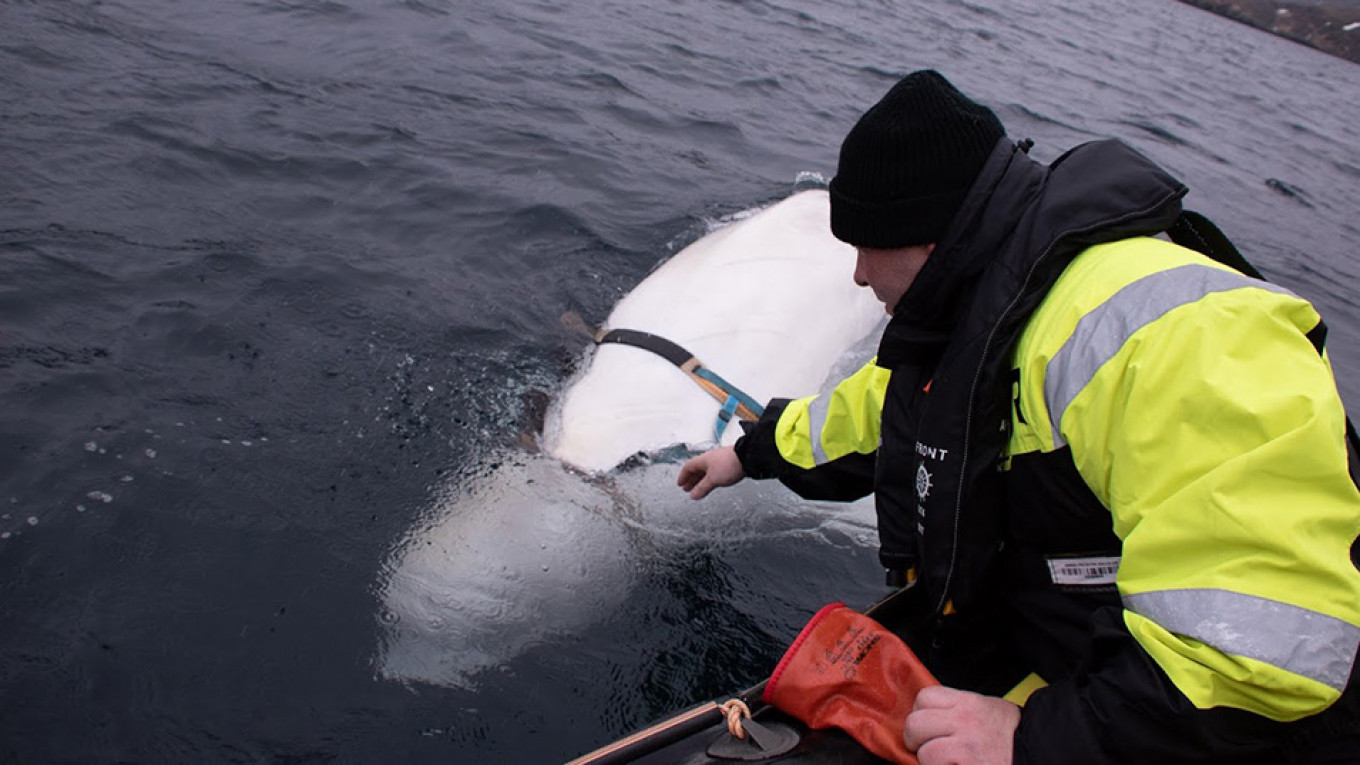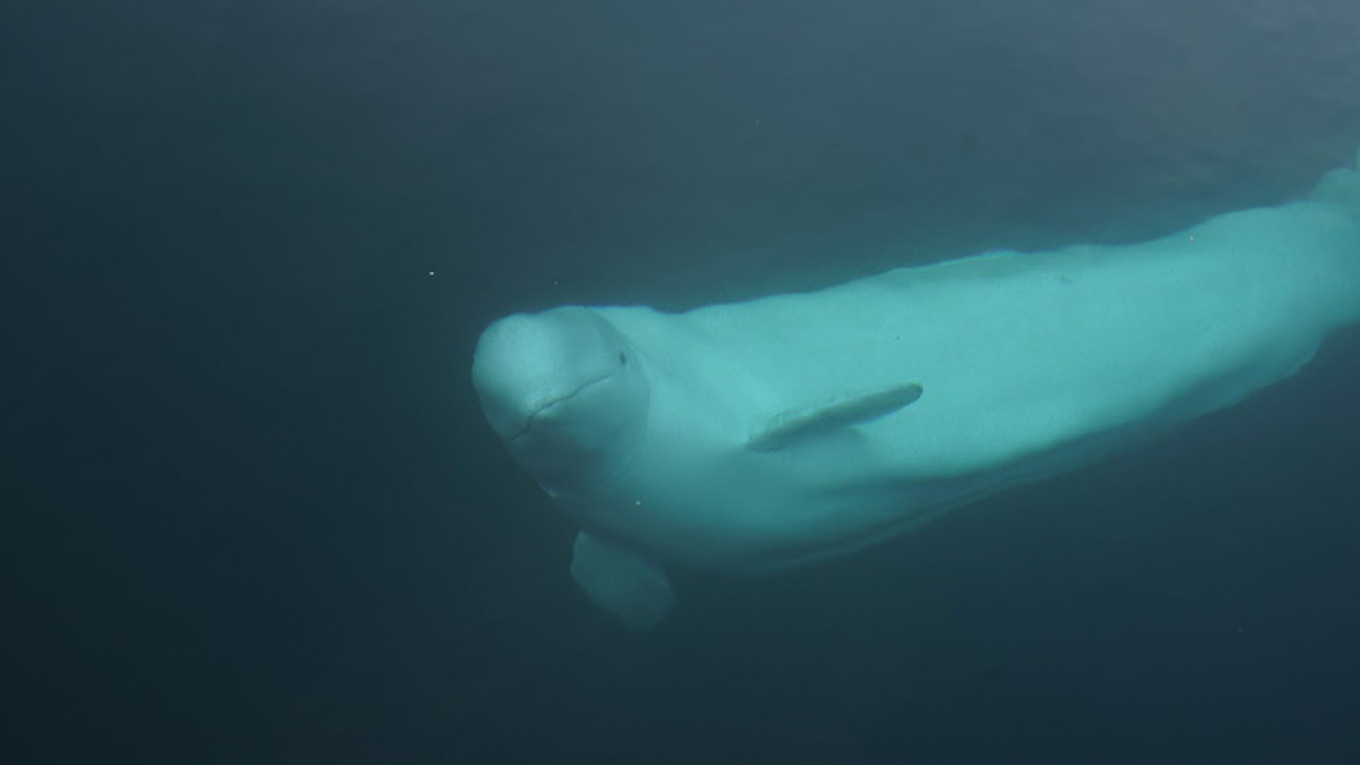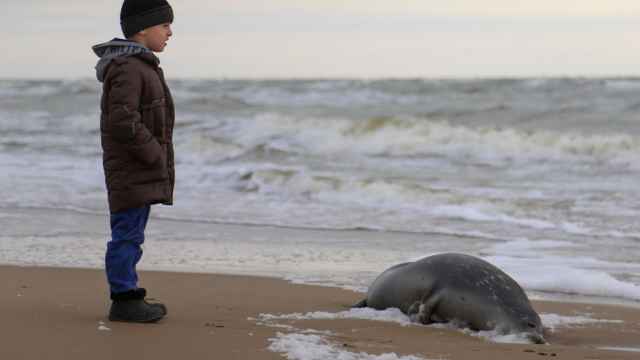The clever animal that for the past two weeks has thrilled locals along the Arctic coast of Norway should be transferred to a "suitable facility," fishery authorities say.
The white whale that turned up around fishing vessels in late April has since stayed in the waters of Hammerfest. Hundreds of people from the small north Norwegian town have since enjoyed the acquaintance of the animal along the local shores.
The harness that originally was connected around its body was successfully released by representatives of the Norwegian Directorate of Fisheries, together with local fisherman Joar Hesten.

The beluga whale clearly seeks human contact and can do various tricks in the water. It was first believed that it had fled from a Russian naval facility for the training of marine mammals. It was later claimed that it previously had served in a therapy unit for sick children in the Russian White Sea area.
The Norwegian Directorate of Fisheries first did not recommend that people feed it or to move it away from the area.
Now, the Norwegian Institute of Marine Research recommends otherwise.
In a letter to the directorate, marine researchers say that the animal is subject to national laws on animal health and that it should be fed by humans in the area if it is incapable of feeding itself.
At the same time, one should consider to transfer the animal to a facility that is suited for beluga whales, the institute says.
Norway, however, has no such facilities. That makes the researchers look towards Russia.

"If this whale comes from a facility in Russia near the border to Norway, the best and quickest solution will be to return the animal to that site," the letter from the research institute reads.
And if that will not be possible, relevant facilities in other countries must be considered, it adds.
Official representatives from Russia have so far not commented on the runaway whale.
This article first appeared in The Barents Observer.
A Message from The Moscow Times:
Dear readers,
We are facing unprecedented challenges. Russia's Prosecutor General's Office has designated The Moscow Times as an "undesirable" organization, criminalizing our work and putting our staff at risk of prosecution. This follows our earlier unjust labeling as a "foreign agent."
These actions are direct attempts to silence independent journalism in Russia. The authorities claim our work "discredits the decisions of the Russian leadership." We see things differently: we strive to provide accurate, unbiased reporting on Russia.
We, the journalists of The Moscow Times, refuse to be silenced. But to continue our work, we need your help.
Your support, no matter how small, makes a world of difference. If you can, please support us monthly starting from just $2. It's quick to set up, and every contribution makes a significant impact.
By supporting The Moscow Times, you're defending open, independent journalism in the face of repression. Thank you for standing with us.
Remind me later.






